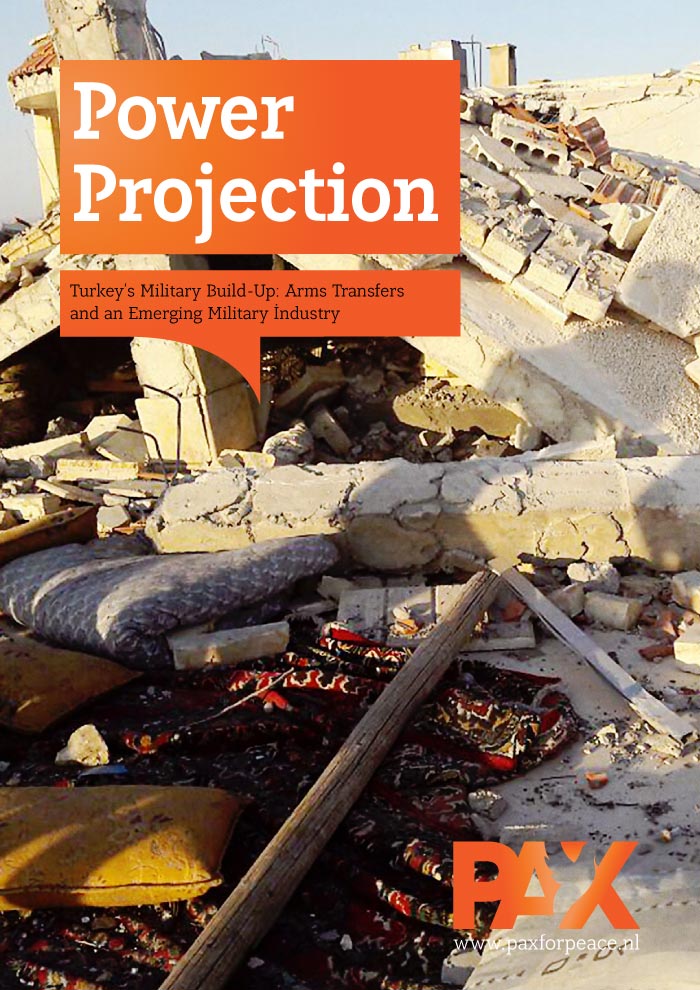Turkey no longer wants to be dependent on imported weapons. President Recep Tayyip Erdogan has overseen the rapid growth of a domestic arms industry, and is pursuing the ambitious development of indigenous weapon systems.
Whereas currently half of its military equipment is still bought abroad, it is one of Turkey’s main aims to become self-sufficient, according to a PAX report published today, Power Projection — Turkey´s Military Build-Up: Arms Transfers and an Emerging Military Industry.
“This is a major change for Turkey,” says the report’s author, PAX arms trade expert Frank Slijper. “They’ll never make their goal of being self-sufficient by 2023, but the investment in the arms industry is a dedicated strategy, and has far-reaching implications.”
Military power
A number of events have put Turkey back in the spotlight in recent years: the influx of refugees into Turkey, the rise of ISIS and Western-backed Kurdish fighters in Syria and Iraq, the re-emergence of the Kurdish conflict within Turkey, as well as the military coup and its aftermath.
Since the collapse of the Kurdish peace process in July 2015 at least 2,400 people have been killed in the southeast of Turkey. And in response to the July 2016 coup, Turkey has jailed 36,000 people and suspended or dismissed more than 100,000 people from the military, judiciary and other public services. Turkey’s heavy crackdown, including on politicians and the media, has strengthened the idea in Europe that the world’s 15th military power is drifting away from democracy and the rule of law.
Domestic arms industry
Against this background of violence and instability, PAX highlights the role of arms transfers and the rapidly emerging Turkish arms industry over the past few decades. No longer the world’s number one arms importer, as it was in the 1990s, Turkey is still number six post-2010. Recent arms imports have mostly come from the United States, South Korea, Spain and Italy.
Given this context, PAX urges states to stop transfers of weapons to Turkey if there is a real risk that they would be used to harm civilians. “This is especially true for arms trade destined for Turkey’s land and air forces,” says Frank Slijper, “since they have been responsible for many civilian casualties and massive destruction of property and key public infrastructure.”




